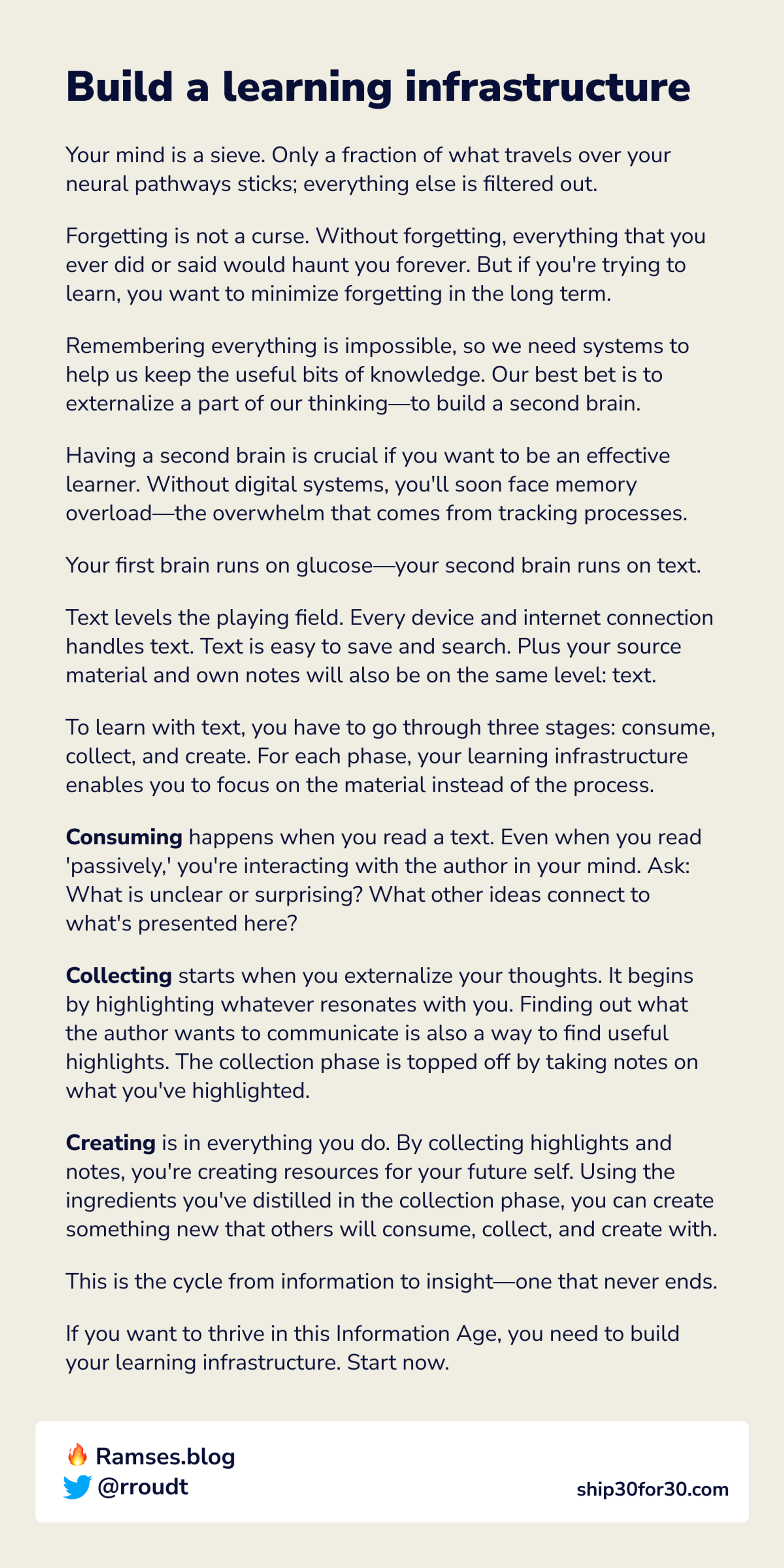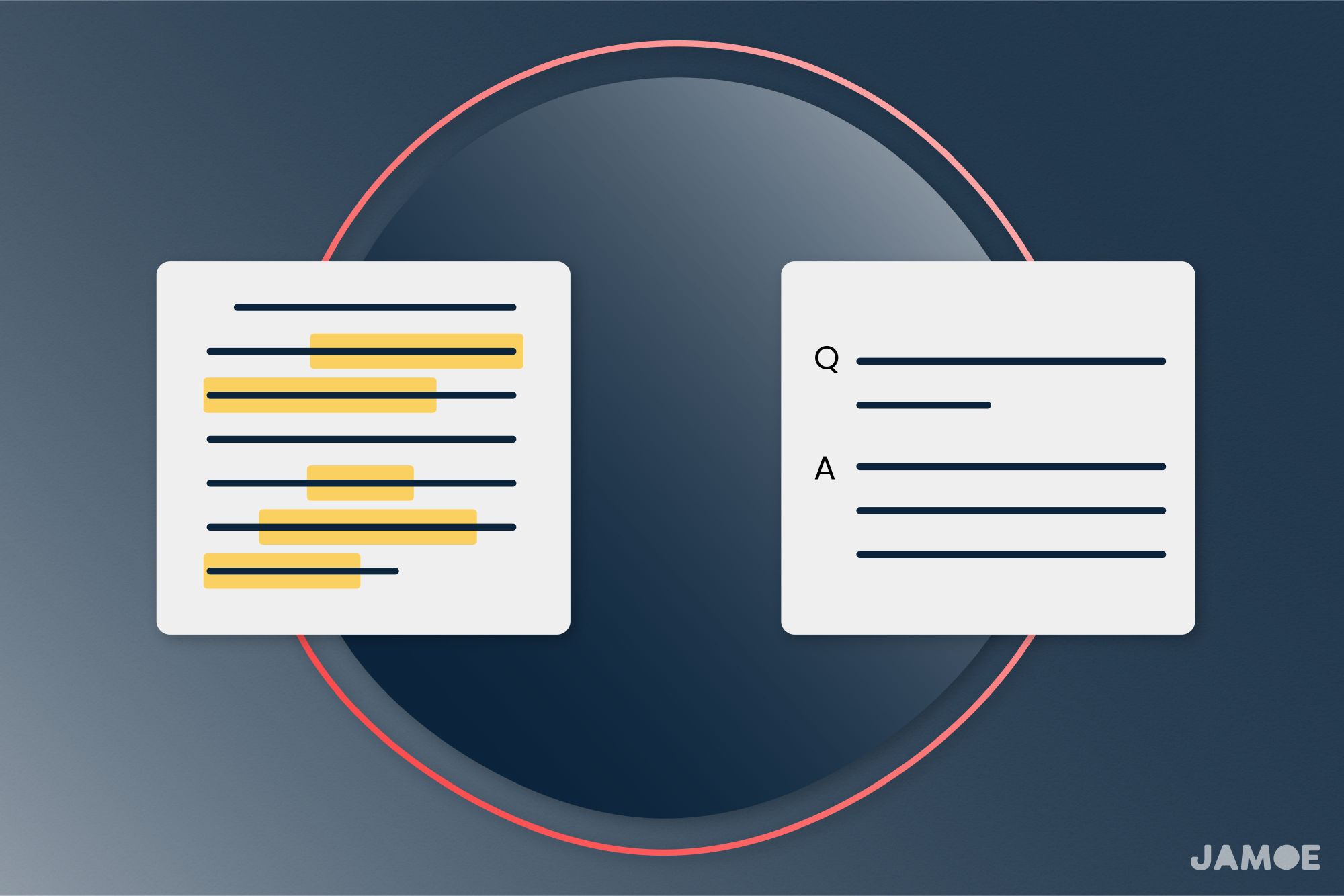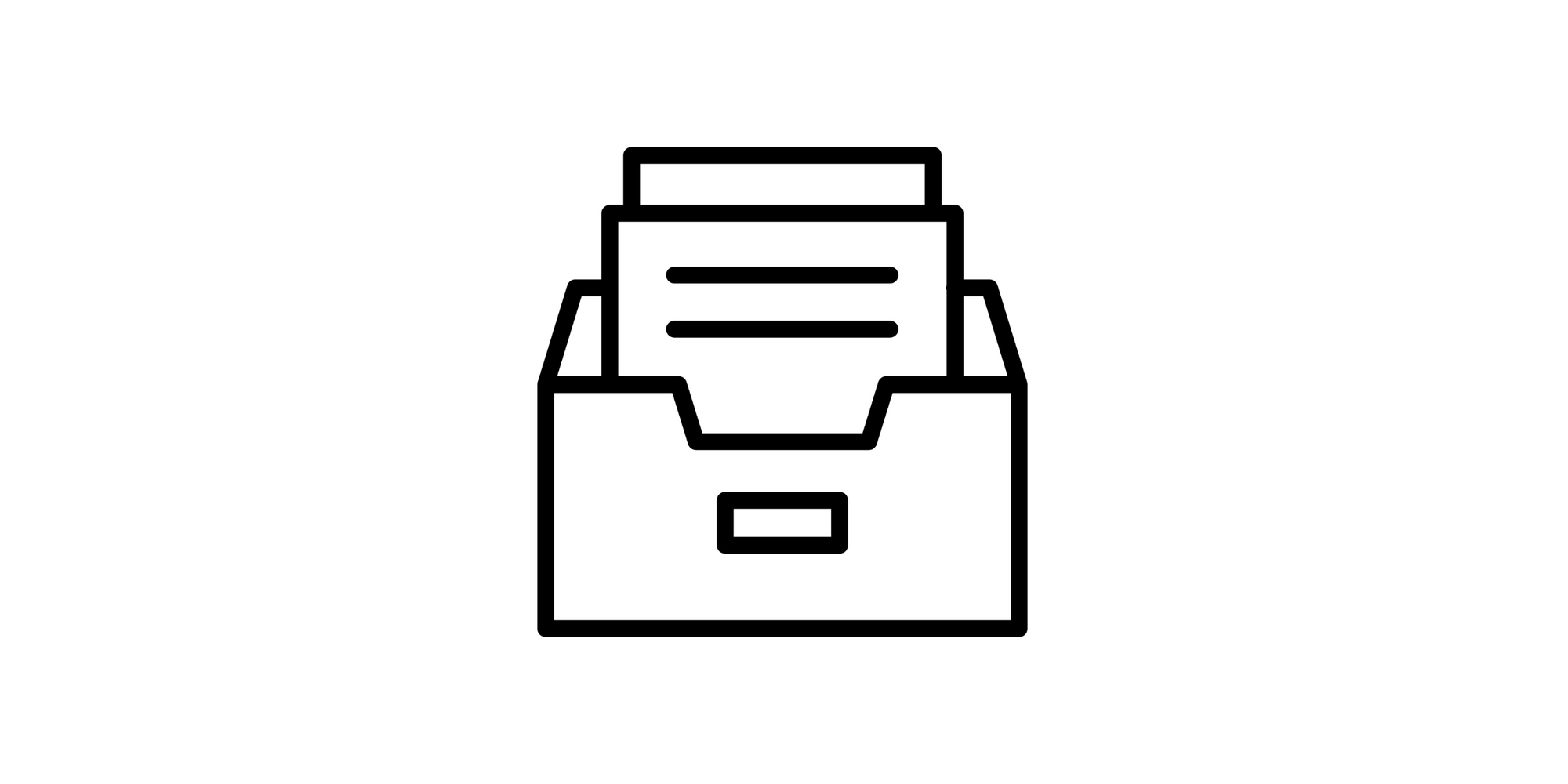Build a personal learning system with Logseq
How do you use Logseq to learn new topics and skills? That's the question the Logseq user community discussed on April 20th, 2022.
This was an audio-only session in the Discord. Therefore, no video is available.
From the video description:
Remembering everything is impossible, so we need systems to help us keep the useful bits of knowledge. Our best bet is to externalize a part of our thinking—to build a second brain. Without digital systems, you'll soon face memory overload—the overwhelm that comes from tracking processes. To learn effectively, you have to go through three stages: consume, collect, and create. For each phase, your learning system enables you to focus on the material instead of the process. In this hour-long session, we shared experiences and insights by using Logseq for learning.
Links mentioned in the video
Atomic essay on building a personal learning infrastructure

Augmenting Long-Term Memory (essay by Michael Nielsen)
How can we develop transformative tools for thought? (essay by Michael Nielsen and Andy Matuschak)
Highlight, Question and Answer approach to note-taking
HQ&A example
MarkDownload browser extension
Starting a Zettelkasten in Roam Research
Example of a podcast note (from The importance of a Dialectic: using the best of opposites to win)
Logseq Office Hours #2: Building processes with queries
Metalearning reading guides (Make It Stick, Ultralearning, How to Take Smart Notes)
Anki spaced repetition system
Logseq workflow for students
Was this resource useful for you?
😞
😐
🤩






